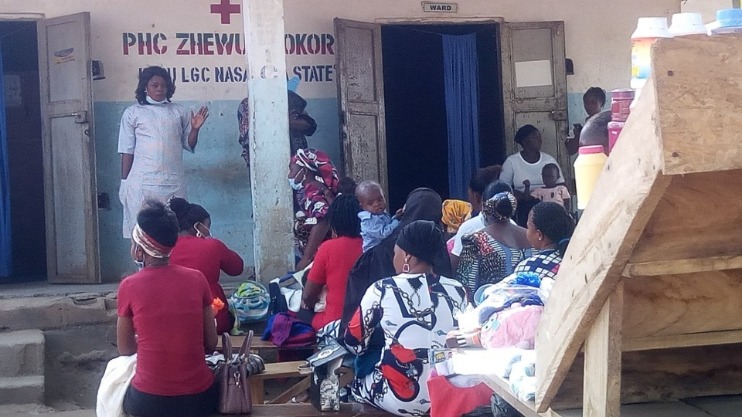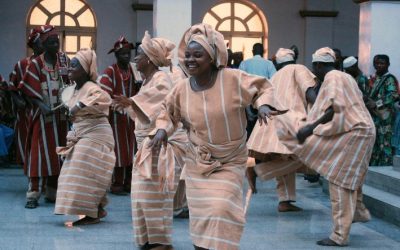Geography and Climate of Nigerian Cities
Nigeria is a diverse country with a wide range of geographic features and climates across its cities. From the coastal areas with their humid tropical climate to the arid northern regions, each city boasts unique environmental conditions that influence its culture, economy, and lifestyle. Understanding the geography and climate of Nigerian cities provides valuable insights into the daily lives of its inhabitants and the nation’s overall landscape.
Location and Topography
Nigerian cities are diverse in geography and climate, shaped by their unique locations and topographical features. From coastal cities to inland urban centers, each city exhibits distinct environmental characteristics that influence their way of life, economy, and climate patterns.
- Lagos is situated along the Atlantic coastline, characterized by low-lying coastal plains and mangrove swamps, making it prone to flooding. Its tropical climate features a humid rainy season and a dry season with high temperatures.
- Abuja, the capital city, is located in the central part of Nigeria on the Jos Plateau. Its elevation of about 1,300 meters gives it a more temperate climate compared to coastal cities, with distinct dry and rainy seasons.
- Kano sits in the Sahelian zone with a semi-arid climate and lies on relatively flat terrain with a mix of plains and low hills, experiencing hot temperatures and seasonal rainfall.
- Port Harcourt, in the southern Niger Delta, is characterized by wetlands, rivers, and tropical rainforest, which contribute to high humidity and heavy rainfall throughout the year.
- Ibadan is located on a high inland plateau in the southwestern part of Nigeria, with a moderate climate influenced by its elevation, featuring relatively stable temperatures and seasonal rainfall.
Climate Zones and Weather Patterns
Nigeria is a West African country characterized by diverse geographical features and a variety of climate zones that influence the weather patterns across its cities. Its geographic landscape includes coastal plains, inland hills, and the expansive Nigerian Plateau, contributing to the climatic variability experienced throughout the nation.
The climate of Nigerian cities generally falls into three main zones:
- Equatorial Climate: Found in the southern regions such as Lagos, Calabar, and Port Harcourt, characterized by high temperatures, high humidity, and significant rainfall all year round.
- Guinea Savannah Climate: Covering the middle belt cities like Minna, Bida, and Kaduna, with distinct wet and dry seasons, moderate temperatures, and seasonal rainfall.
- Savannah Climate: Present in northern cities such as Kano, Sokoto, and Maiduguri, marked by hot temperatures, less precipitation, and a generally dry environment.
Weather patterns in Nigerian cities are largely governed by these climate zones. The southern coastal areas experience a humid tropical climate with substantial rainfall during the rainy season from April to October. The middle belt sees a marked wet and dry season, while the northern regions endure harsher dry conditions and higher temperatures, especially during months from March to June and September to November. The variety in climate influences agriculture, urban planning, and daily life across Nigerian cities, making the country a fascinating mosaic of geographical and climatic diversity.
Historical Background
The history of Nigerian cities is a rich tapestry woven with diverse cultures, ancient civilizations, and colonial influences. From the bustling markets of Lagos to the historic sites of Kano, these urban centers reflect Nigeria’s complex past and dynamic growth. Understanding the historical background of Nigerian cities provides insight into their development, cultural heritage, and the factors that continue to shape them today.
Origins and Early Settlements
The historical background of cities in Nigeria is deeply rooted in its rich cultural heritage and diverse societies that have existed for centuries. Early settlements in Nigeria date back to ancient civilizations such as the Nok culture, which thrived around 1500 BC and is renowned for its terracotta sculptures. These early communities laid the foundation for more developed urban centers that emerged over time. In the coastal regions, cities like Lagos began as small fishing villages before evolving into major trading hubs during the 15th and 16th centuries, influenced by interactions with Europeans. The inland kingdoms, such as the Kano and Benin empires, established bustling centers that served as political, commercial, and cultural hubs. These early settlements played a crucial role in shaping the social and economic landscape of modern Nigerian cities, reflecting a blend of indigenous traditions and external influences through centuries of trade, conquest, and colonization.
Colonial Era and Post-Independence Development
The city of Nigeria, often referred to in terms of its major urban centers such as Lagos, has a rich historical background shaped by diverse cultural influences and significant historical events. Its development can be traced through various periods, including the colonial era and post-independence phases, which have significantly contributed to its growth and modernization.
- The colonial era in Nigeria began in the late 19th century when European powers, primarily the British, established control over the region. Lagos, as a key port city, became a vital hub for trade, especially in palm oil and other commodities. During this period, infrastructure such as roads, railways, and administrative buildings were developed, laying the groundwork for urban expansion.
- Colonial rule also introduced Western education, legal systems, and economic policies, which influenced the city’s social fabric and urban landscape. However, this era also brought about challenges such as social stratification and cultural disruptions.
- Following Nigeria’s independence in 1960, the city experienced rapid growth driven by rural-urban migration, industrialization, and the expansion of administrative functions. Lagos emerged as the political and economic center of Nigeria, attracting investments and population growth.
- Post-independence development focused on urban infrastructure, housing, and public services to accommodate the rising population. Nonetheless, rapid urbanization also led to challenges like congestion, informal settlements, and environmental issues, prompting ongoing efforts for sustainable city planning.
Demographics and Population
The demographics and population of a city provide essential insights into its social, economic, and cultural dynamics. In Nigeria, cities are experiencing rapid growth and diversity, reflecting broader national trends. Understanding the population distribution, age groups, and ethnic composition helps in planning urban development and addressing various challenges faced by urban centers in Nigeria.
Population Size and Growth Trends
The city of Nigeria is characterized by diverse demographics and dynamic population trends that shape its development and urban landscape.
- Population Size: Nigeria’s major cities, including Lagos, Abuja, and Port Harcourt, are experiencing rapid population growth, with Lagos alone estimated to have over 14 million inhabitants as of recent data.
- Growth Trends: The urban population is increasing at a significant rate due to rural-to-urban migration, natural population growth, and economic opportunities, leading to urban expansion and increasing demand for infrastructure and services.
- Demographic Composition: The population comprises a mix of various ethnic groups, languages, and religions, with a youthful demographic profile indicating a large proportion of residents under the age of 30, which influences social and economic policies.
- Challenges and Opportunities: The fast-growing population presents challenges such as housing shortages, traffic congestion, and environmental concerns, but also offers opportunities for economic productivity and cultural vibrancy.
Ethnic Composition and Languages
The city of Nigeria, as a vibrant urban center, boasts a diverse demographic profile with a rapidly growing population that reflects the country’s overall demographic trends. Its population is characterized by a youthful demographic, with a significant proportion of residents under the age of 30. The city attracts people from various regions, contributing to its rich demographic complexity.
Ethnically, the city is a melting pot of Nigeria’s numerous ethnic groups. It is predominantly inhabited by ethnic groups such as the Yoruba, Igbo, and Hausa, among others, creating a multicultural environment. This ethnic diversity is a vital aspect of the city’s cultural identity and social fabric.
Languages spoken in the city are equally diverse. While English is the official language used in government, education, and business, many residents also speak local languages including Yoruba, Igbo, and Hausa. This multilingualism reflects the city’s broad ethnic composition and the nation’s linguistic diversity. The coexistence of multiple languages and ethnic groups makes the city a dynamic and vibrant metropolis blending tradition and modernity.
Religion and Cultural Diversity
The city of Nigeria is characterized by a diverse demographic and population landscape, reflecting a rich tapestry of ethnic groups and communities. Its population is composed of various age groups, with a youthful demographic common in many urban areas. This diversity contributes to the city’s vibrant social and cultural fabric.
Religiously, Nigeria’s cities are home to a wide array of faiths, including Islam, Christianity, and traditional African beliefs. This religious diversity influences the city’s cultural practices, festivals, and daily life, fostering an environment of coexistence and mutual respect.
Culturally, Nigeria’s urban centers are melting pots of traditions, languages, and customs from different ethnic groups such as the Hausa, Yoruba, Igbo, and others. This multicultural environment is evident in the city’s cuisine, music, art, and celebrations, making Nigeria’s cities dynamic hubs of cultural exchange and innovation.
Economic Activities and Industries
The city of Nigeria is a vibrant hub of economic activities and industries that drive its growth and development. From agriculture and manufacturing to technology and trade, diverse sectors contribute to the city’s dynamic economy. These industries not only provide employment opportunities but also shape the urban landscape, making Nigeria a key player in regional and national markets.
Major Sectors Supporting the Economy
The city of Nigeria is a vibrant hub of economic activities and diverse industries that drive the nation’s growth. Its major sectors include agriculture, manufacturing, services, and commerce, each playing a crucial role in supporting the local and national economy. Agriculture remains a significant contributor, providing employment and raw materials for various industries. The manufacturing sector has seen growth with the production of textiles, cement, and food processing, fostering industrial development. The services industry, including banking, telecommunications, and hospitality, is expanding rapidly, serving both residents and tourists. Additionally, commerce thrives through bustling markets and trade centers, facilitating domestic and international trade. These sectors collectively form the backbone of the city’s economy, promoting sustainable development and economic stability in Nigeria.
Trade and Commerce Hubs
The city of Nigeria, particularly Lagos, is a vibrant hub of economic activities and diverse industries. It serves as a central point for trade and commerce, facilitating the movement of goods and services both within the country and internationally. The city’s economy is bolstered by its bustling markets, financial institutions, and manufacturing sectors, making it a key driver of Nigeria’s overall economic growth. As a major trade and commerce hub, Lagos hosts numerous shipping ports and business districts that connect Nigeria to the global economy. Additionally, the city’s dynamic business environment attracts entrepreneurs, investors, and multinational companies, further enhancing its reputation as a leading economic center in Nigeria.
Emerging Industries and Innovation
The city of Nigeria boasts a diverse economic landscape characterized by a mix of traditional industries and emerging sectors. Historically, agriculture and commerce have played vital roles in shaping its economy, with vibrant markets and farming communities contributing significantly to local livelihoods. In recent years, there has been a shift towards industrialization, with manufacturing and construction gaining prominence to meet urban growth demands.
Emerging industries in Nigerian cities include information technology, telecommunications, and financial services, driven by increased technological adoption and a youthful, dynamic population. The rise of startups and innovation hubs highlights the city’s push towards becoming a center for technological development and entrepreneurial activities. These industries are fostering job creation, improving infrastructure, and enhancing the city’s global economic standing.
Innovation in Nigeria’s cities is also evident in the adoption of smart technologies and sustainable practices aimed at addressing urban challenges. Initiatives in e-governance, renewable energy, and digital transactions demonstrate a commitment to modernization and economic resilience. This blend of traditional and innovative industries positions Nigeria’s cities as pivotal players in the country’s overall economic growth and development.
Urban Infrastructure and Development
Urban infrastructure and development are essential components for the growth and sustainability of Nigerian cities. As urban populations continue to rise, it becomes increasingly important to invest in efficient transportation systems, reliable water and sewage services, and sustainable energy solutions. These developments not only improve the quality of life for residents but also promote economic growth and environmental protection, shaping a vibrant and resilient urban landscape in Nigeria.
Transportation Networks and Public Transit
Urban infrastructure and development in Nigerian cities are crucial for supporting the growing population and enhancing the quality of life for residents. Effective transportation networks and public transit systems are key components that facilitate mobility, reduce traffic congestion, and promote economic activities across urban areas. In many Nigerian cities, efforts are being made to improve road networks, introduce modern transit solutions, and expand public transportation services to meet increasing demand. These developments aim to create more sustainable and accessible urban environments, ultimately contributing to the overall development and modernization of Nigerian cities.
Housing and Real Estate
The city of Nigeria is experiencing rapid urbanization, leading to significant developments in infrastructure and housing. As the population grows, there is a pressing need to upgrade transportation networks, improve roads, and expand public transit systems to accommodate the increasing demand. Additionally, modern urban planning efforts focus on creating sustainable and resilient infrastructure to support economic activities and enhance the quality of life for residents. The housing sector in Nigerian cities is also witnessing a transformation, with government initiatives and private investments aimed at providing affordable and affordable housing options. Real estate developments are flourishing, driving the expansion of commercial, residential, and mixed-use spaces to meet the diverse needs of urban dwellers. Overall, these advancements are crucial for fostering sustainable growth and ensuring the city remains a vibrant hub of activity and opportunity.
Utilities and Public Services
The city of Nigeria faces various challenges and opportunities in urban infrastructure and development, utilities, and public services. Effective planning and investment are essential to support its growing population and economic activities.
- Urban Infrastructure: The city requires robust transportation networks, including roads, bridges, and public transit systems, to improve mobility and reduce congestion.
- Utilities: Reliable water supply, sanitation, electricity, and waste management services are critical to ensure quality of life and sustainable development.
- Public Services: Access to healthcare, education, emergency services, and security must be enhanced to meet the needs of residents and promote social stability.
- Development Projects: Key initiatives include upgrading infrastructure, expanding affordable housing, and implementing smart city technologies for efficient management.
- Challenges: Issues such as inadequate funding, rapid urbanization, and informal settlements pose significant barriers to development.
- Future Focus: Emphasizing sustainable growth, investing in renewable energy, and strengthening public service delivery will be vital for the city’s progress.
Education and Healthcare
The cities of Nigeria boast vibrant communities where education and healthcare play vital roles in shaping the future of their residents. Access to quality education and efficient healthcare services are essential for fostering growth, development, and well-being in these urban centers. As Nigeria’s cities continue to expand, efforts are being made to improve infrastructure and resources to better serve their diverse populations.
Key Educational Institutions
Education and healthcare are vital sectors that significantly contribute to the development of any city in Nigeria. In this city, there is a structured network of educational institutions offering diverse programs to students of all ages. Key among them are prominent universities, technical colleges, and primary and secondary schools that serve as centers of learning and innovation.
Some of the most notable educational institutions include the University of Nigeria, which is renowned for its academic excellence and research contributions. Additionally, polytechnics and colleges such as the Federal Polytechnic and various state-run secondary schools play crucial roles in shaping the future workforce of the city. These institutions are equipped with modern facilities and experienced faculty to ensure quality education.
In the healthcare sector, the city boasts several leading hospitals and clinics providing comprehensive medical services to residents. Major healthcare institutions include the Lagos University Teaching Hospital and private hospitals that offer specialized medical treatments. The city also has numerous primary healthcare centers aimed at promoting preventive care and improving overall public health.
Overall, the combination of robust educational institutions and advanced healthcare facilities positions the city as a growing hub of learning and health, fostering sustainable development and enhancing the quality of life for its inhabitants.
Healthcare Facilities and Access
Education and healthcare are vital components of urban development in Nigerian cities, impacting the quality of life for residents. Access to quality healthcare facilities and educational institutions determines the overall well-being, economic growth, and social stability of the city.
- Many cities in Nigeria, including Lagos and Abuja, have seen expanded healthcare facilities, but disparities remain between urban and rural areas.
- Public hospitals in Nigerian cities often face challenges such as insufficient funding, outdated equipment, and shortages of medical staff.
- Educational infrastructure varies widely, with some urban centers hosting reputable universities and schools, while others struggle with access and quality issues.
- Efforts are ongoing to improve healthcare access through government initiatives and international aid, aiming to increase the availability of clinics and hospitals in underserved neighborhoods.
- Many cities are also focusing on integrating technology to improve healthcare delivery and education, making essential services more accessible to all residents.
Cultural and Tourist Attractions
The city of Nigeria is a vibrant hub of cultural and tourist attractions that captivate visitors from around the world. Rich in history, diverse traditions, and modern developments, the city offers a blend of old and new experiences. From historic landmarks to lively markets and scenic spots, it provides an unforgettable journey into Nigeria’s unique heritage and contemporary lifestyle.
Heritage Sites and Museums
Nigeria is a vibrant country rich in cultural heritage and diverse attractions that draw tourists from around the world. Its cities are filled with historical sites, museums, and lively cultural scenes that showcase Nigeria’s unique history and traditions.
- National Museum in Lagos – A premier destination showcasing Nigeria’s archaeological and historical artifacts.
- Oba’s Palace in Benin City – A magnificent cultural site that reflects the rich history of the Benin Kingdom.
- David URS Museum in Enugu – Offers insights into the cultural and artistic heritage of Nigeria.
- Osun-Osogbo Sacred Grove – A UNESCO World Heritage Site and a significant spiritual site for the Yoruba people.
- Nigeria National Museum in Abuja – Features diverse exhibits that highlight Nigeria’s diverse cultures and history.
- The Lekki Conservation Centre in Lagos – Combines ecological beauty with cultural education through various exhibits and activities.
Festivals and Cultural Events
The city of Nigeria is renowned for its vibrant cultural scene and diverse attractions that draw tourists from around the world. Visitors can explore numerous museums, historical sites, and colorful markets that showcase the rich heritage of the region. Popular landmarks include ancient palaces, architectural marvels, and bustling street markets offering traditional crafts and local delicacies.

Festival and cultural events play a significant role in shaping the city’s lively atmosphere. The city hosts annual celebrations such as the Lagos Carnival, which features lively parades, music, dance, and traditional costumes. Other notable festivals include the Eyo Festival, a unique masquerade event that celebrates Yoruba cultural heritage, and the Argungu Fishing Festival, showcasing local fishing traditions and community spirit. These events serve as a wonderful opportunity to experience the vibrant customs, music, dance, and cuisine that define the city’s cultural identity.
Natural Attractions and Recreational Areas
Nigeria’s cities are vibrant hubs of culture, history, and natural beauty, offering a diverse range of attractions for visitors and residents alike. In particular, Lagos stands out with its bustling markets, historic sites, and rich cultural scene that showcases music, dance, and art. The city is also close to natural attractions such as the Lekki Conservation Centre, which provides a serene escape into Nigeria’s lush flora and fauna. Additionally, Nigeria boasts numerous recreational areas like parks and beaches that offer opportunities for relaxation and outdoor activities. From the lively streets of Abuja to the scenic landscapes surrounding Calabar, Nigerian cities present a compelling blend of cultural richness, natural beauty, and recreational enjoyment for all who visit or reside there.
Challenges Facing Nigerian Cities
Nigerian cities face a multitude of challenges that impact their growth and development. Rapid urbanization has led to overpopulation, straining infrastructure and public services. Additionally, issues such as inadequate transportation networks, water supply problems, and rising unemployment further complicate the urban landscape. Addressing these challenges is essential for fostering sustainable development and improving the quality of life for residents in Nigerian cities.
Urban Congestion and Traffic Issues
Nigerian cities face numerous challenges related to urban congestion and traffic issues, which significantly impact daily life and economic productivity. Rapid population growth and rural-to-urban migration have led to increased demand for transportation infrastructure that many cities struggle to meet. As a result, roads become overcrowded, leading to prolonged traffic jams and longer commute times for residents.
Inadequate transportation planning and insufficient public transit options exacerbate these problems. Many urban areas rely heavily on private vehicles, contributing to congestion and pollution. The lack of proper traffic management systems and enforcement of traffic laws further worsen the situation, causing chaos on the roads and increasing the risk of accidents.
Urban congestion also affects the delivery of essential services, reduces productivity, and diminishes the quality of life in Nigerian cities. Addressing these challenges requires comprehensive urban planning, investment in public transportation, and policies aimed at managing population growth and traffic demand effectively.
Environmental Concerns and Pollution
Nigerian cities are confronting numerous challenges that threaten sustainable development and the well-being of their residents. Rapid urbanization has led to overcrowding, inadequate infrastructure, and increased pressure on essential services such as healthcare, education, and transportation. These issues often result in substandard living conditions and hinder economic growth.
Environmental concerns are also prominent in Nigerian cities, with pollution being a significant problem. The disposal of waste is frequently improper, leading to clogged drainage systems and the proliferation of disease-carrying pests. Air pollution from vehicular emissions, industrial activities, and open burning further deteriorates air quality, impacting public health.
Pollution in Nigerian cities not only affects human health but also harms local ecosystems. Water bodies are often contaminated by untreated sewage and industrial waste, leading to waterborne diseases and loss of aquatic life. Addressing these environmental challenges requires comprehensive policies, community engagement, and the adoption of sustainable practices to create healthier urban environments.
Security and Social Stability
Nigerian cities face numerous challenges that threaten their development and social harmony. Rapid urbanization has led to overcrowding, inadequate infrastructure, and increased pressure on public services. Security issues, such as insurgency, kidnapping, and cybercrime, further undermine stability and deter investment. Social stability is also impacted by unemployment, poverty, and ethnic tensions, which can ignite conflicts and disrupt peaceful coexistence. Addressing these issues requires comprehensive strategies involving government, community stakeholders, and international partners to promote sustainable urban growth, strengthen security measures, and foster social cohesion in Nigerian cities.
Urban Poverty and Housing Shortages
Urban centers in Nigeria face numerous challenges that impact the quality of life for residents. Rapid population growth has led to increased demand for housing, resulting in widespread shortages and inadequate living conditions. Many cities struggle with urban poverty, where a significant portion of the population lives in slums and informal settlements with limited access to basic services. These issues are compounded by infrastructural deficits, poor planning, and insufficient investment in urban development.
- Overpopulation leading to strained infrastructure and resources
- Housing shortages causing overcrowding and increased homelessness
- High levels of urban poverty affecting access to education, healthcare, and employment
- Inadequate waste management and sanitation facilities
- Traffic congestion and transportation challenges
- Environmental degradation due to unregulated development and pollution
- Lack of affordable housing options for low-income residents
- Insufficient urban planning and governance
Future Development and Planning
Future development and planning are essential for the sustainable growth of cities in Nigeria. As urban areas continue to expand rapidly, strategic efforts are needed to improve infrastructure, transportation, and housing while preserving the environment. Thoughtful planning ensures that Nigerian cities can accommodate increasing populations, promote economic opportunities, and enhance the quality of life for residents.
Urban Planning Initiatives
The city of Nigeria is poised for significant growth through comprehensive future development and urban planning initiatives aimed at enhancing sustainability, infrastructure, and quality of life for its residents.
- Implementation of smart city technologies to improve traffic management, public safety, and resource efficiency.
- Expansion of public transportation networks, including new bus routes and rail systems, to reduce traffic congestion.
- Development of green spaces and eco-friendly zones to promote environmental sustainability and recreation.
- Upgrading of existing infrastructure to support a growing population, including water supply, sanitation, and energy systems.
- Encouragement of mixed-use developments to foster vibrant communities and reduce urban sprawl.
- Promotion of affordable housing projects to accommodate diverse socioeconomic groups.
- Adoption of resilient urban designs to withstand climate change impacts and natural disasters.
- Engagement of local communities in planning processes to ensure inclusive and responsive development.
Smart City Technologies
The future development and planning of Nigerian cities are increasingly focusing on integrating smart city technologies to enhance urban living. Embracing innovations such as IoT, data analytics, and intelligent transportation systems can significantly improve infrastructure, reduce congestion, and promote sustainable growth. Strategic planning aims to adopt renewable energy sources, implement digital governance, and foster citizen engagement through smart platforms. These advancements are expected to transform Nigerian cities into more efficient, resilient, and livable environments, ensuring economic development and improved quality of life for residents.
Sustainable Development Goals
The future development and planning of cities in Nigeria should prioritize sustainable growth to ensure economic prosperity, social inclusion, and environmental protection. Incorporating the Sustainable Development Goals (SDGs) into urban planning will help address challenges such as rapid population growth, inadequate infrastructure, and environmental degradation. Strategic investments in renewable energy, transportation, healthcare, and education are essential to create resilient cities that can support the well-being of all residents. Emphasizing sustainable practices will also promote green spaces, waste management, and pollution reduction, contributing to healthier urban environments. By fostering inclusive development and leveraging innovative technologies, Nigerian cities can achieve long-term sustainability and improved quality of life for their citizens.





0 Comments